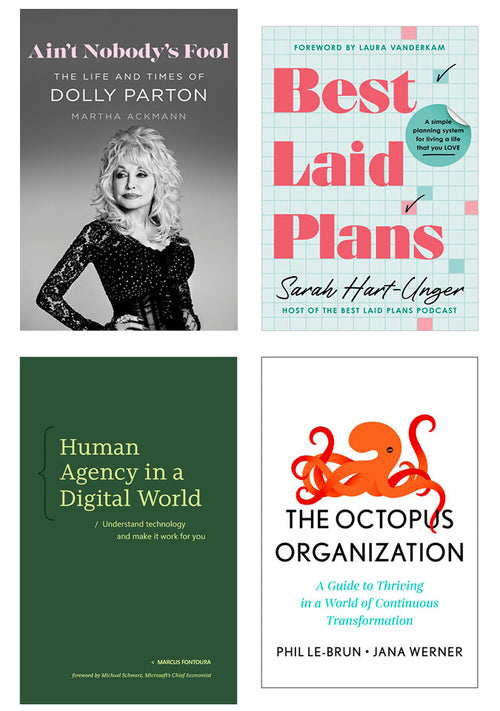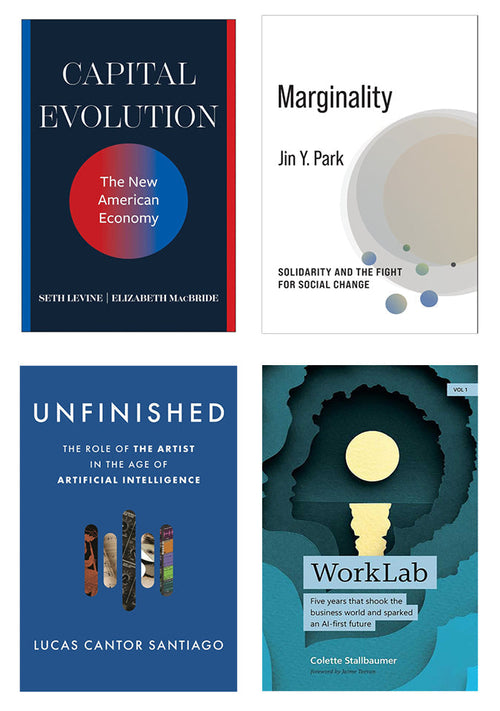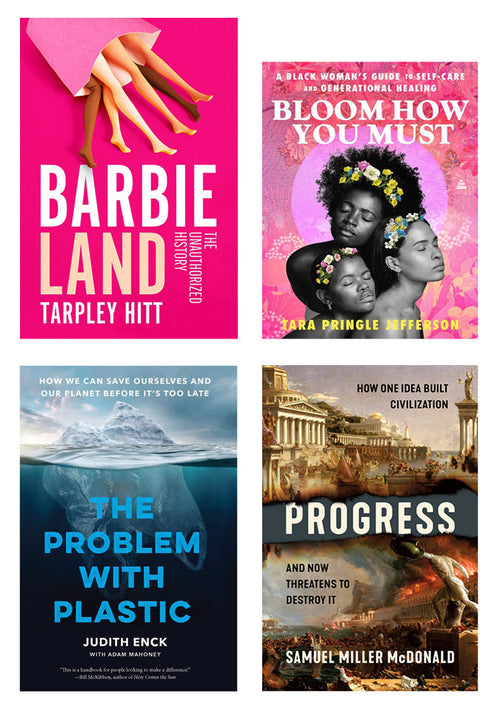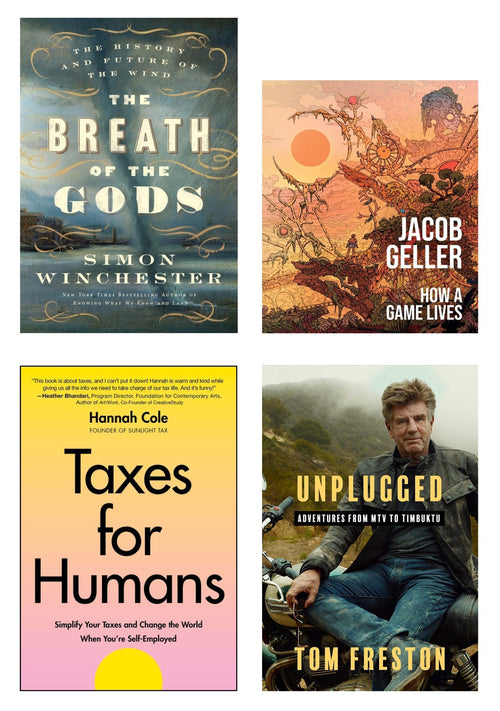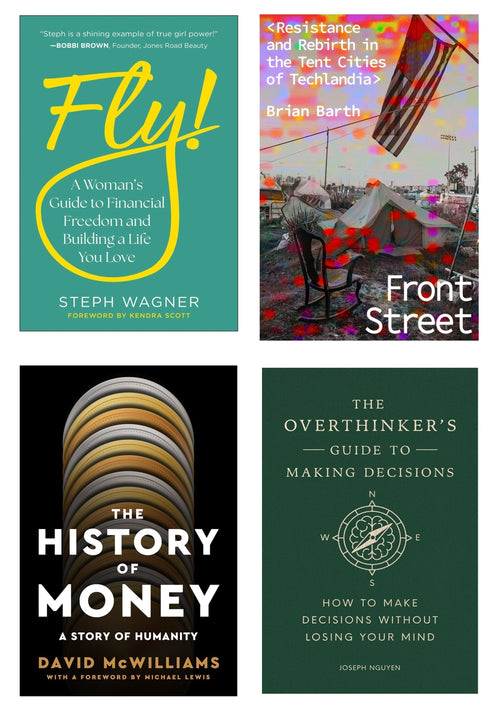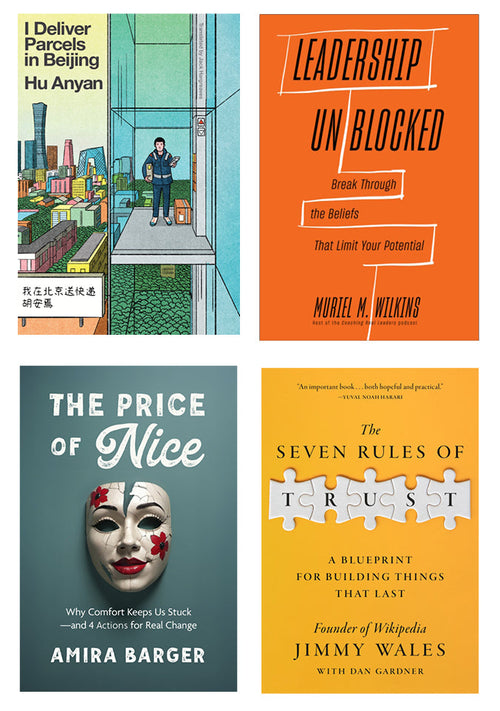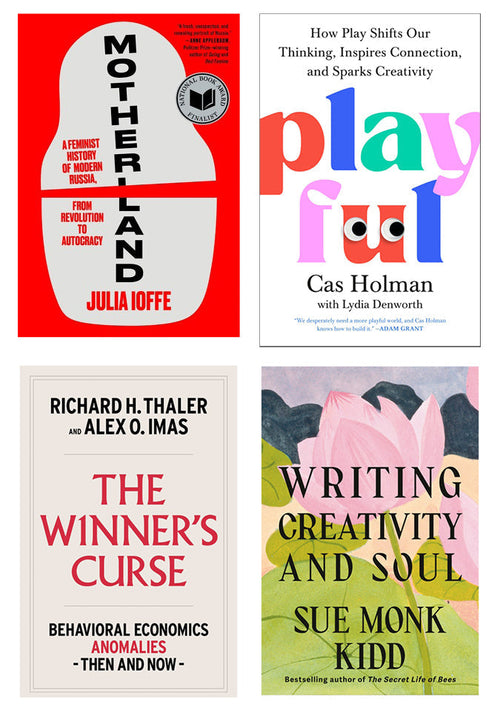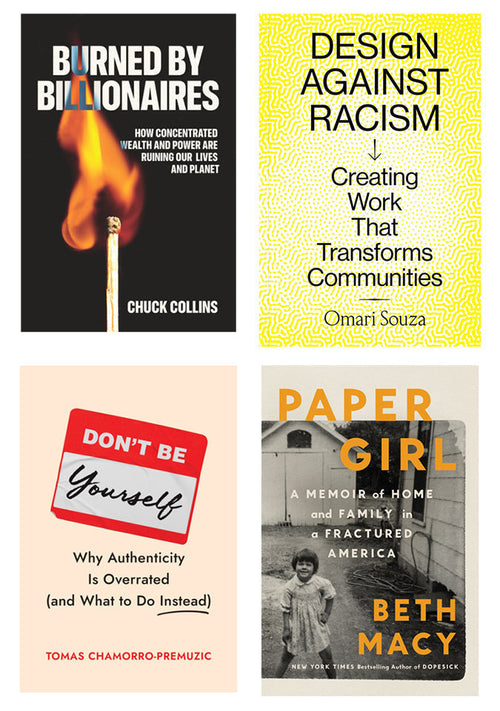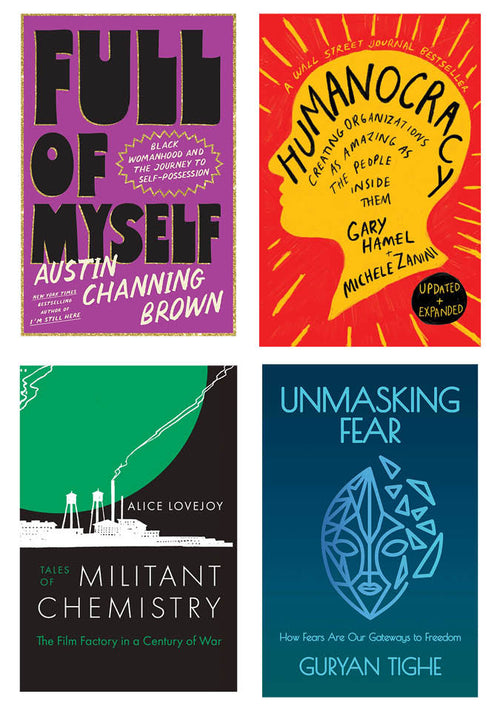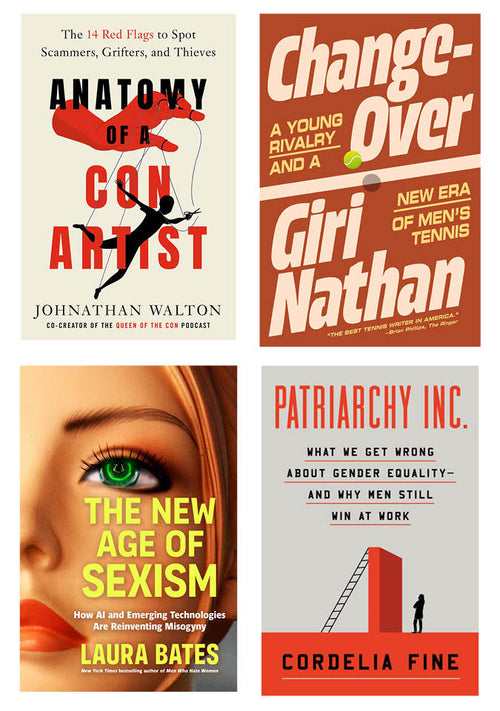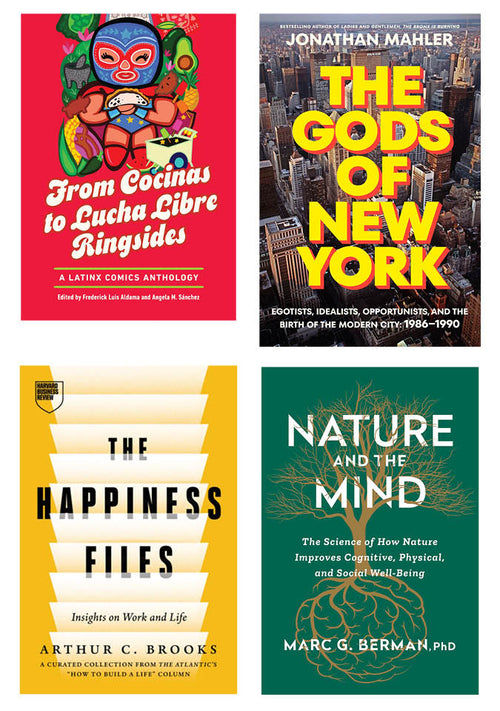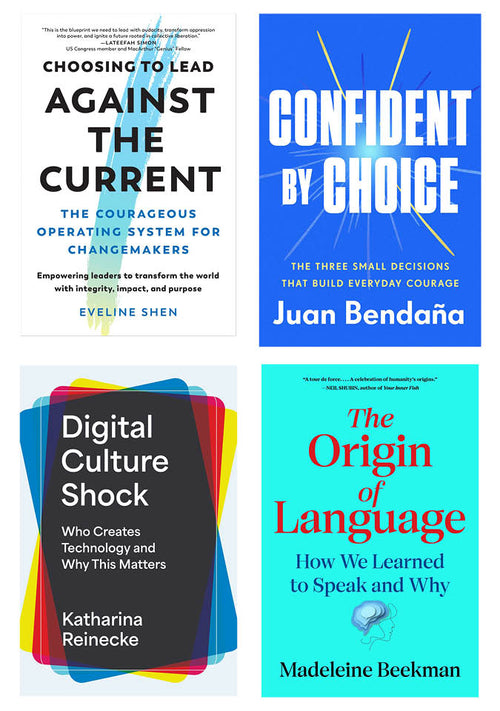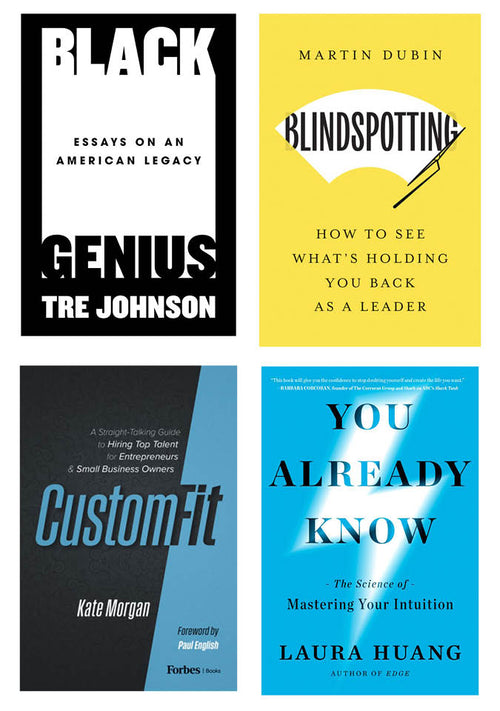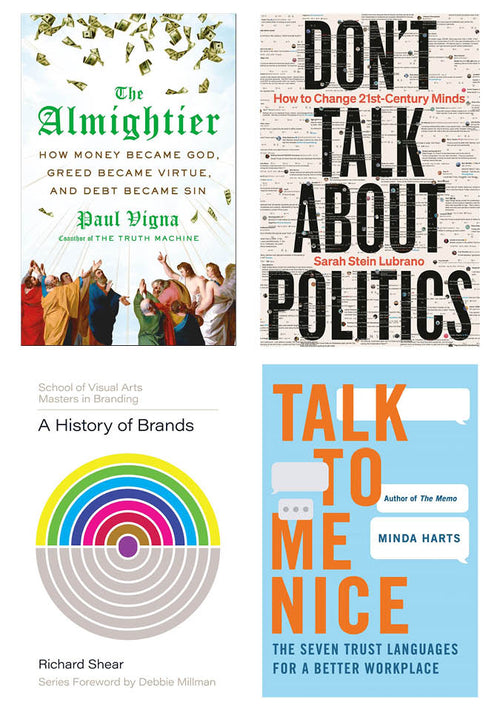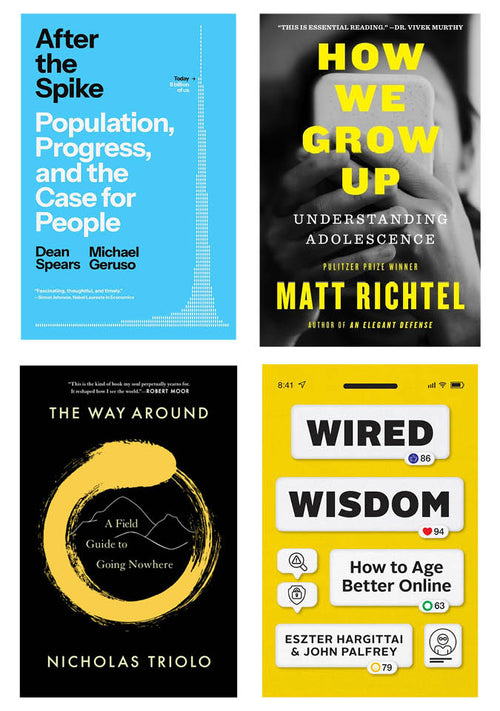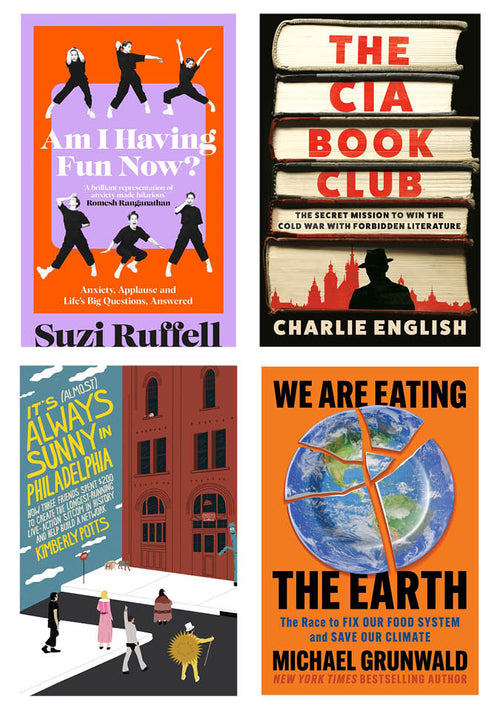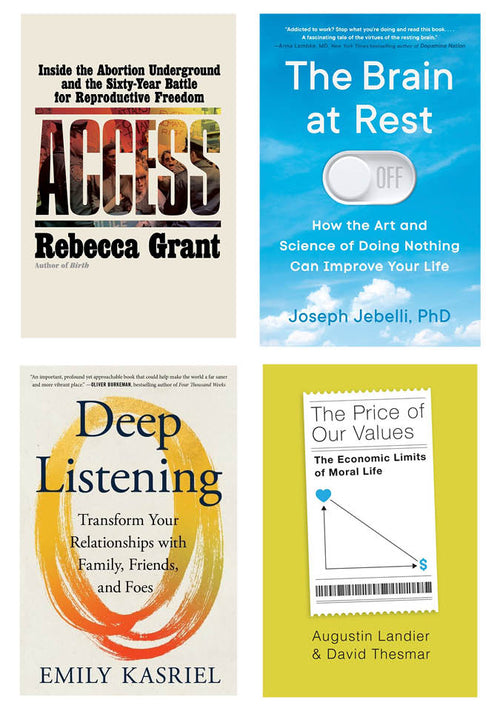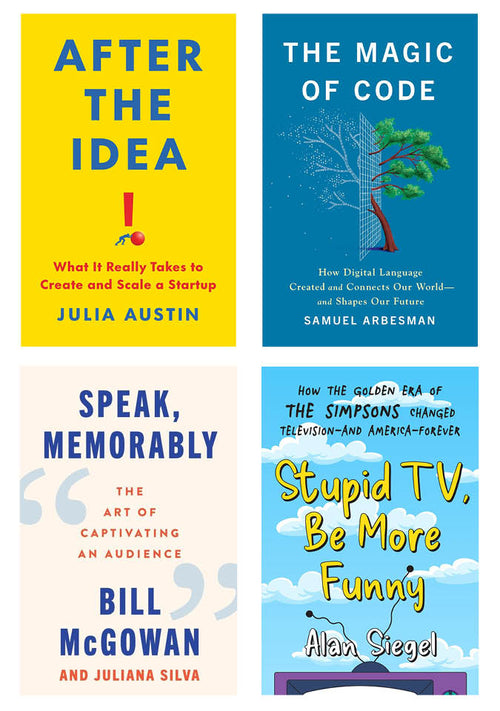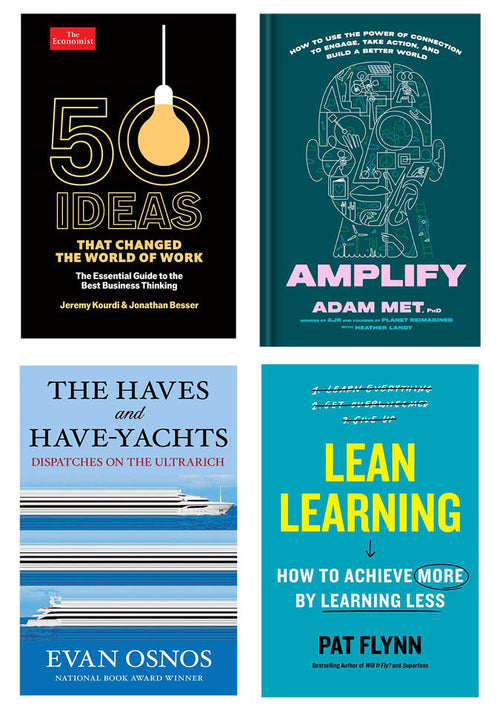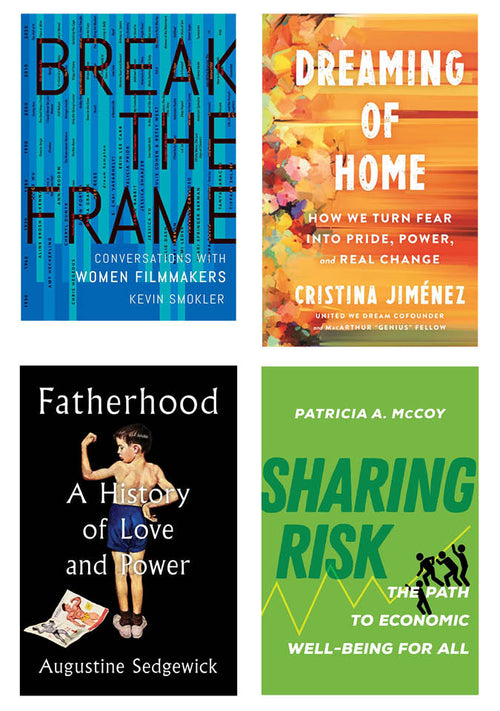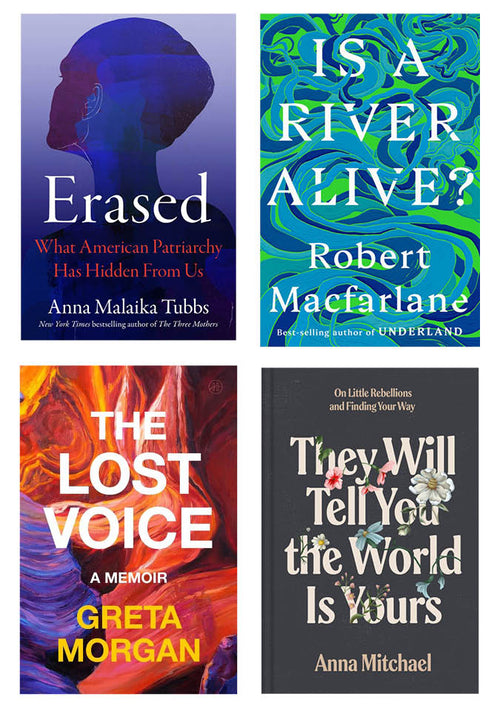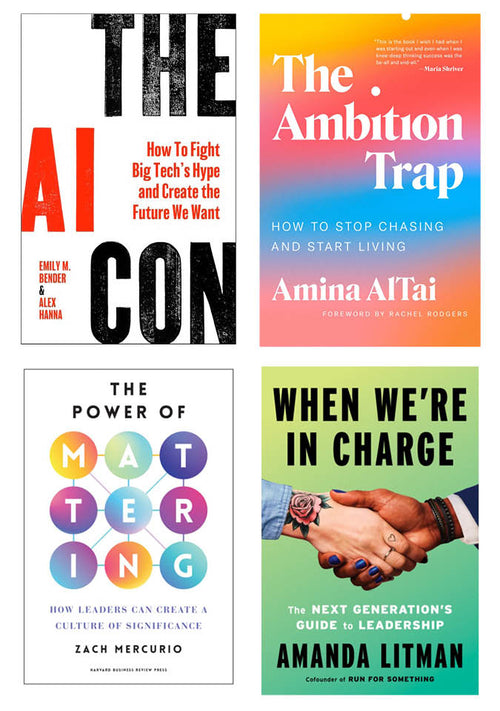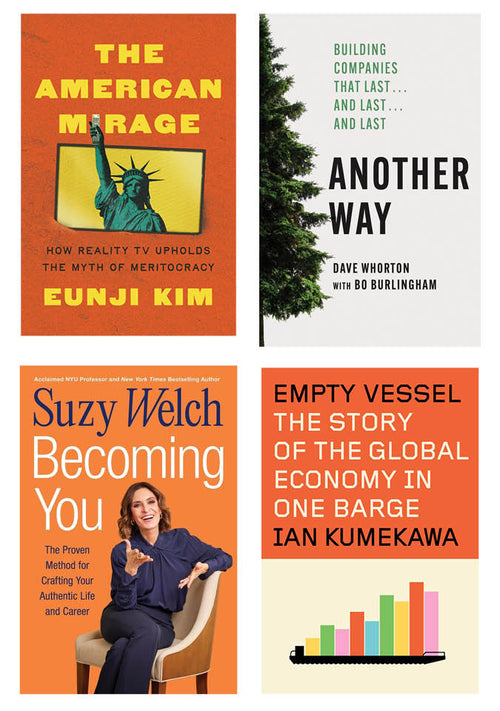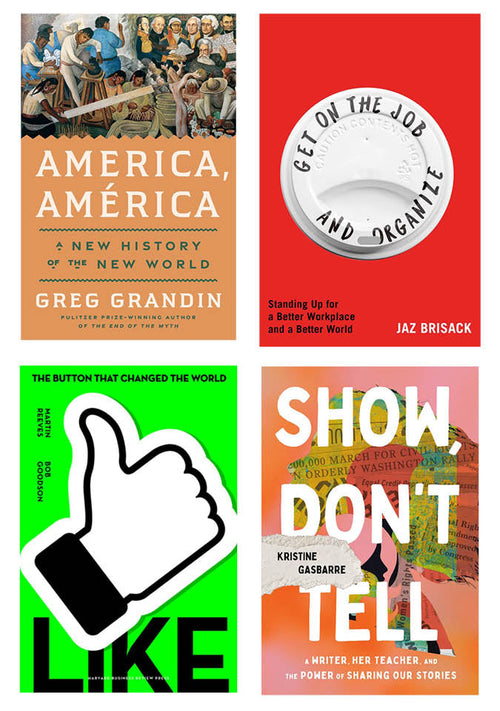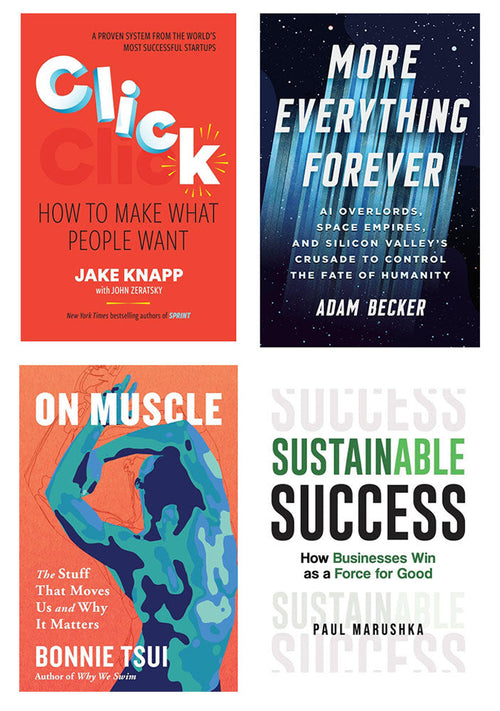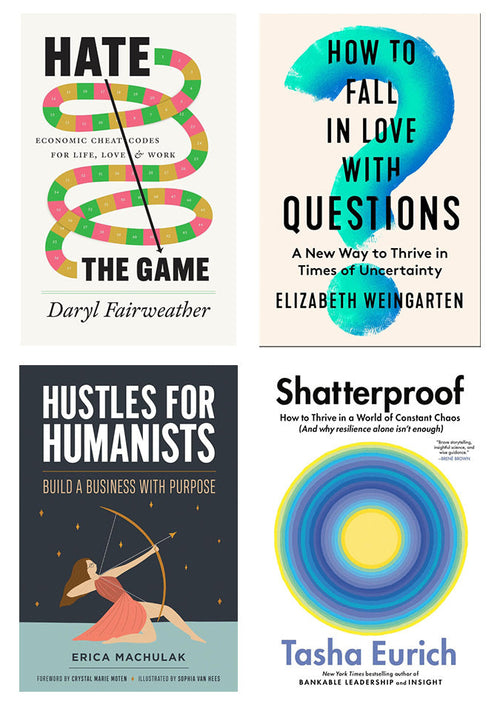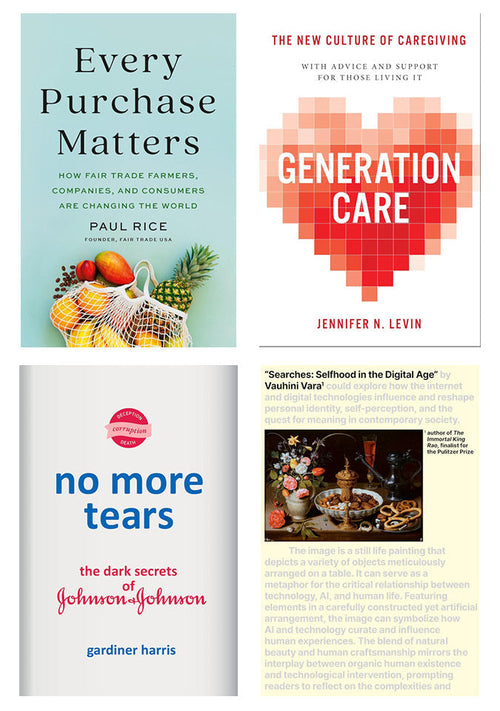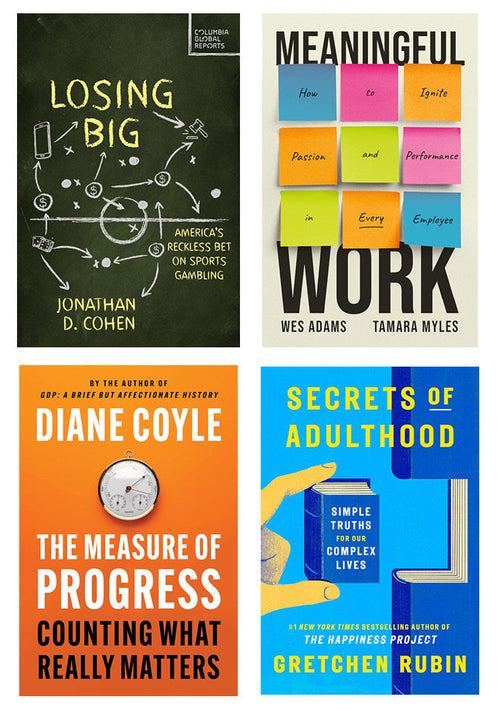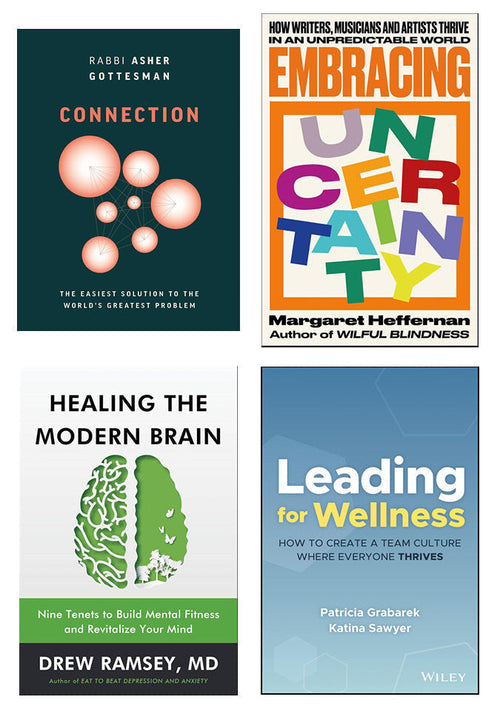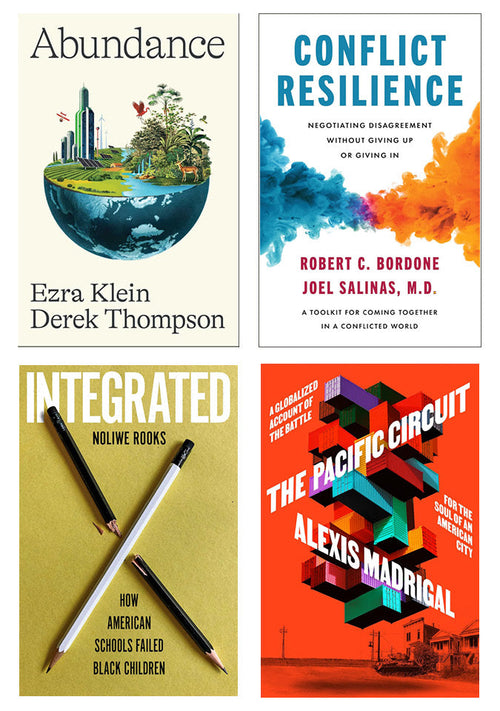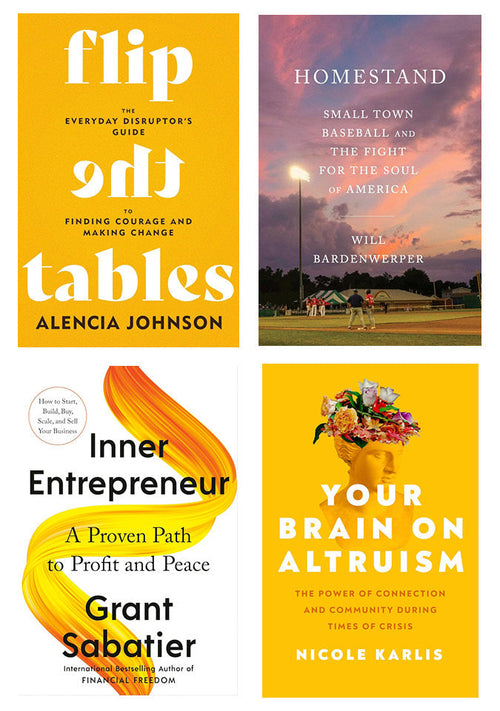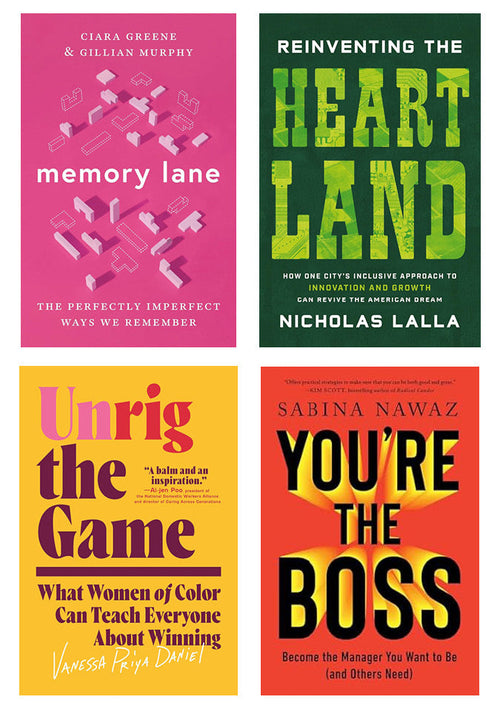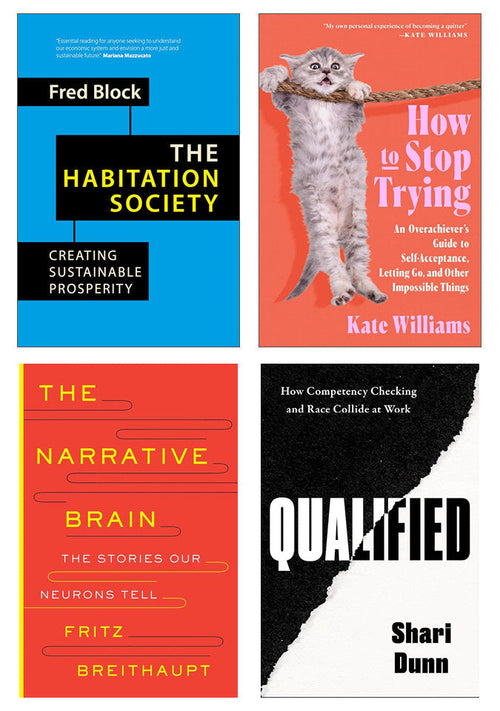Books to Watch | May 12, 2020
Each and every week, our marketing team—Marketing Director Blyth Meier (BRM), Digital Marketing Specialist Gabbi Cisneros (GMC), and Editorial Director Dylan Schleicher (DJJS)—highlights five new books we are most excited about.
This week, our choices are:

Easy Tiki: A Modern Revival with 60 Recipes by Chloe Frechette, Ten Speed Press
Sometimes, all we need is a change of scenery to make the world seem like a different place. For many, that change used to be found at restaurants and bars. And no place was more of an escape from whatever reality you were in than a tiki bar. Colorful lights, no windows, bamboo chairs, and umbrella-adorned rum drinks served in hollowed-out pineapples—just the place to trick your brain into thinking you are on a tropical beach, thousands of miles away from this unusually cold and dreary Midwestern spring. Of course, when the current situation makes it impossible to do so, you have to bring the island party to your own home. Enter Chloe Frechette’s Easy Tiki, which provides a “new set of simplified drinks designed for the revival age, which aim to bring tiki back within the home bartender’s reach.” Here you’ll find both classic and modern tiki recipes, an overview of international rum profiles, tips for creating the “tiki atmosphere,” and, of course, the history of tiki. Started by a World War II veteran named Donn Beach (whose motto was “What one rum can’t do, three rums can.”), the tiki movement was an escape from the harsh realities of Depression-era living. Included here are no less than five recipes showcasing the movement’s most iconic drink: Classic Mai Tai, Kentucky Mai Tai, Mai Sha Roa Na, Bitter Mai Tai, and (most importantly) Breakfast Mai Tai. And while tiki drinks are renowned for their laundry list recipes, the most important ingredient is our own imagination: “The ability for a cocktail to conjure another world through its composition, presentation, and name.” Let your mind wander far and wide as you peruse recipes from tiki bars all across the world with names like Missionary's Downfall, Quarantine Order, Fog Cutter, Our Man in Havana, Staycation, or Lost Voyage (from my very own neighborhood tiki bar, Foundation). You don’t need Zoom to be transported on a virtual vacation when you have Easy Tiki on your bar cart. (BRM)
We found this excerpt of 3 easy cocktail recipes for when you need to be transported to that island in your mind ASAP.
Enemy of All Mankind: A True Story of Piracy, Power, and History's First Global Manhunt by Steven Johnson, Riverhead
Steven Johnson has been a favorite author of ours for over a decade now, since his book Where Good Ideas Come from: The Natural History of Innovation captured our attention in 2009. He already had many books under his belt by the time we first found him, though, including one on the Cholera epidemic of London in the summer of 1854 that, in light of the times, I am oddly excited to return to.
His new book focuses on events 150 years before that book, and begins in the Indian Ocean with a single clash between a Mughal trading ship and an English Pirate. It was the era just before the “golden age” of piracy, and the exploits he describes not only turned a West Country lad into the most famous and wanted criminal on Earth, but helped inspire the generation of pirates that included Blackbeard and Calico Jack that came after him. But, as with all the stories Johnson tells, he weaves it together nonlinearly, pulling in backstories and broader historical developments that led to this precise, history-shaping moment. As he says:
It tells the story of the individual lives caught up in the crisis that erupted after the events of September 1695, but also the stories of a different kind of character, on step up the chain: forms of social organization, institutions, new media platforms. One of those institutions was as ancient as piracy itself: the autocratic theocracy of the Mughal dynasty. The others were just coming into being: the multinational corporation, the popular press, the administrative empire that would come to dominate India starting in the middle of the next century.
It is also the story of a fundamental, underlying economic change: the “shift from late feudalism to early agrarian capitalism” and its effects upon a population displaced by that shift. As we face similarly consequential economic changes today, Johnson has found a way to make this swashbuckling tale of seventeenth century piracy and global adventure feel as relevant to our times as the evening news—and less anxiety inducing, to boot. (DJJS)
Johnson also has a new podcast on Fighting Coronavirus that is more enlightening than fear inducing, which is helpful for those that want to stay informed without the anxiety.
Homemade Yogurt & Kefir: 71 Recipes for Making & Using Probiotic-Rich Ferments by Gianaclis Caldwell, Storey Publishing
All of us are responding to this time differently in our kitchens. My brother is on a bread mission, perfecting his focaccia and Sicilian pizza. Others like my colleague Lauren are tackling homemade versions of their favorite store-bought snacks (graham crackers from scratch, anyone?). As for me, I’m focused on squeezing every last edible drop out of my weekly grocery trip. After making a jar of margaritas, the pile of leftover lime rinds became a revelatory citrus simple syrup a day later. A collection of forgotten pears, shriveled ginger, and too much sugar turned into perada (pear paste) over a lazy Sunday afternoon while watching the Stephen Sondheim 90th birthday tribute. And each time I have to use up that not-quite-empty carton of milk to make room for a new one, it eventually becomes ricotta or yogurt, with the leftover whey subbing in for rice-cooking water. I think it’s fair to say I’ve become obsessed with this zero-waste game, which is why I’m thrilled to now have Gianaclis Caldwell’s Homemade Yogurt & Kefir at my fingertips. What sets this yogurt book apart is the global range of yogurts featured—from Russian Ryazhenka and Vietnamese Sữa Chua to Icelandic Skyr and Indian Mishti Doi. So many ways to transform my leftover milk! Caldwell also includes recipes for kefirs, cheeses, sweets, and many dairy-free options. With farmer profiles, bacterial charts and step-by step photos and illustrations, it’s a great primer for those new to fermented dairy, yet still has enough to challenge those whose yogurt making is already a weekly routine. (BRM)
A recent article about farms as “working” vacation getaways featured author Gianaclis Caldwell’s farm, known for its Nigerian dwarf goats!
The Museum of Whales You Will Never See: And Other Excursions to Iceland's Most Unusual Museums by A. Kendra Greene, Penguin Books
"When they boarded the boats, the Icelanders had the heaviest trunks. Because they packed their trunks with books. Not clothes, not shoes. Books. You don't feel starving or in pain if you have a book."
–Valgeir Þorvaldsson
The book began with three quotes, and I share the one above, because it feels like an essential reflection of the tone of the book and the intentions of the author.
Every component of this book provides the most comforting form of escapism for me. It makes me nostalgic for all the natural history museums I've visited on family vacations as a child, when everything behind the glass felt like barely-contained fantasy, and the life-sized statues and dinosaur skeletons both threatened me and beckoned me closer. Is it real? Was it real? I wonder these same things almost daily. Is this life now? Were cramped concerts and sticky-floored bars filled with music and yelling and laughter really a normal part of life? Sometimes it's hard to come to terms with how much experiencing life has changed, but books like The Museum of Whales help me look fondly at the past through the eyes of a poetic, museum-appreciating author who provides quite the whimsical tour through Iceland.
Greene intersperses sketches of moments, places, and things throughout the pages which stitch the book's chapters and vignettes together into a beautiful portrait of off-the-beaten-path travel journalism.
The ridgelines here are black rock or lupine laced, perhaps dotted with sheep, if not dusted with snow. Where there is shoreline enough I pick up sea glass and shards of china, walk past feathers and sometimes bones. I have come, I think it is right to say, because of the borders of this place. Because not just here but always, something happens at the edges.
I've always sought out lesser-known attractions while traveling (the Crystal Shrine Grotto of Memphis, Tennessee comes to mind. The reaction from our Lyft driver made me think he did not often drop off tourists at the Memorial Park Cemetery), and this book fills my head with equal parts quirky exhibitions (i.e. Iceland Phallological Museum, "the only museum in the world to contain a collection of phallic specimens belonging to all the various types of mammal found in a single country"), and the classic breathtaking vistas of Iceland's lava fields, hotsprings, and cities. Greene makes me eager to have travels to write home about, which isn't much of a goal when most of the travels I've undertaken recently have been to the grocery store a couple blocks from my apartment. Regardless: reading The Museum of Whales You Will Never See is the perfect retreat into a world of bookshelves and curio cabinets–collections of animals and plants and body parts–while helping you sustain your own spring cleaning intentions. (GMC)
Right now, you should read an excerpt from the chapter “On Necropants: The Museum of Icelandic Sorcery and Witchcraft.”
The World: A Brief Introduction by Richard Haass, Penguin Press
Richard Haass has served as an adviser to both George H. W. Bush and Colin Powell. He was a Senior Director for Near East and South Asian Affairs during Operation Desert Shield and Operation Desert Storm, for which he received the Presidential Citizens Medal in 1991. 1991 was, incidentally, also the year the Soviet Union dissolved. Which is to say that Haass not only had a front row seat to grand sweeps of world history, but was actively involved in the development of policies that helped shape them at the time.
Haass is now president of the Council on Foreign Relations. The impetus for his new book was learning that the child of a friend graduating with a computer science major from Stanford had received almost no education about the history of the country and world he was graduating into, and thus had little grasp on civics and of global affairs. It is not just our young people, though. Even for those of us who graduated in earlier times:
New technologies and issues, from the internet to artificial intelligence to climate change, have emerged. The time has come to stop thinking of an education as something we receive in our youth, finish by the time we are in our early to mid-twenties, and live off for the next fifty years.
As we’ve all been reminded very acutely lately, “The United States is bordered by two oceans, but oceans are not moats.” What takes place in global markets obviously affects us all, but even what takes place in a local market on the other side of the globe can upend our daily lives. Haass may not get as granular as local markets, but he does provide an understanding of the six principal regions of the world, their history and current dynamics, and provides a broader overview of global history and the global challenges we face today. It is all to help readers gain a greater “global literacy” and understanding of international relations that is essential for understanding and addressing the challenges we all face—important for policy makers, a computer science major working on building the infrastructure of the future, and every citizen. (DJJS)
For more, check out WBUR’s interview with Haass on International Relations In The COVID-19 Era.
What we're reading away from work:
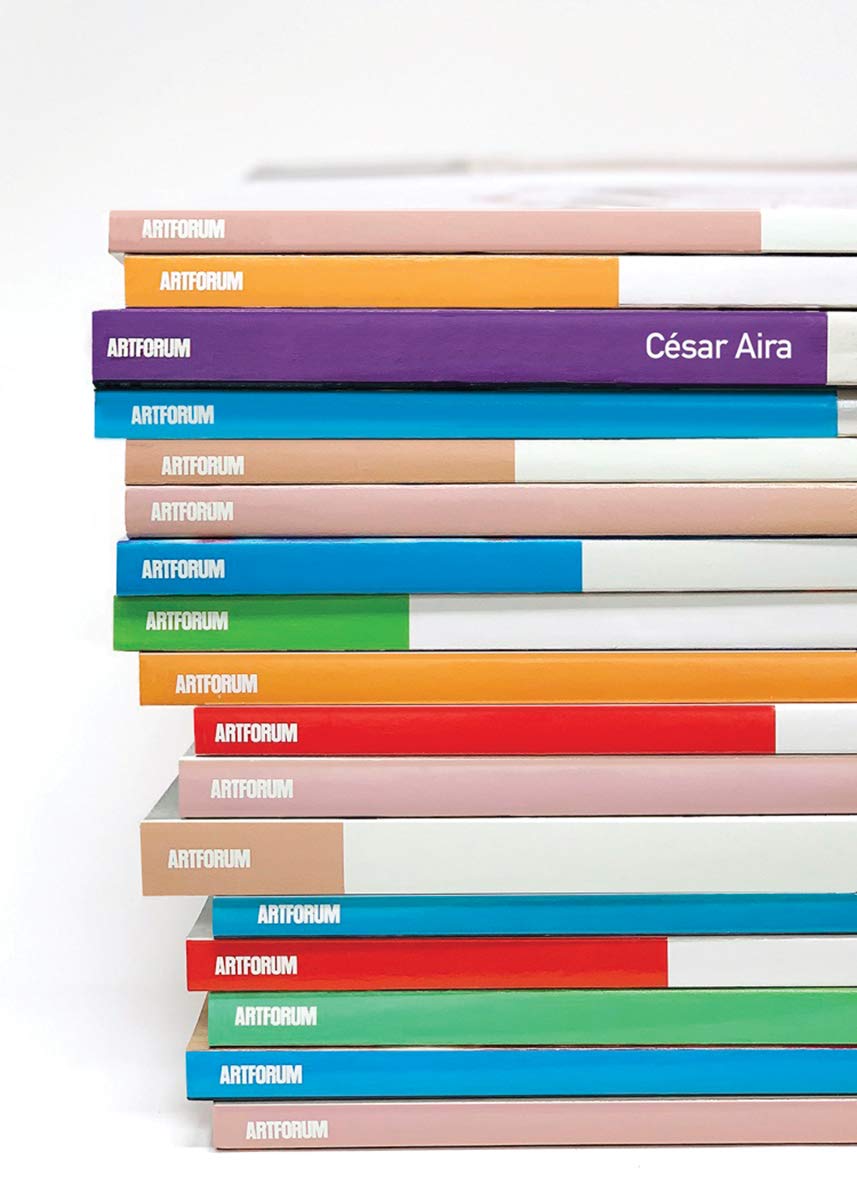 "This book...every page is sunshine on my soul."
"This book...every page is sunshine on my soul."
—Michael Jantz, Project Development Director, on Artforum by César Aira
For a limited time, we’re offering free shipping on domestic mass mailings and waiving customization fees on bulk book orders—among other special offers.









